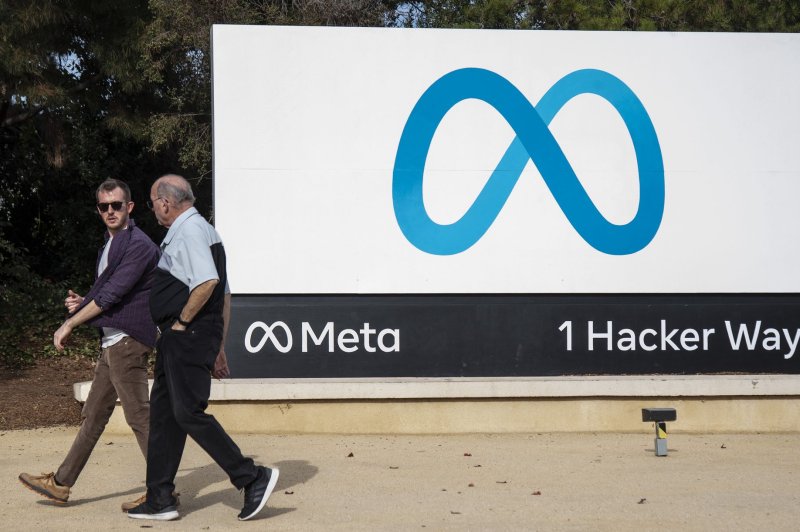1 of 3 | U.S. tech giants, including Facebook owner Meta, are threatening to pull the plug on news content after U.S. lawmakers amended a defense bill to include a provision that would help the media get paid for content. File photo by Terry Schmitt/UPI |
License Photo
Dec. 6 (UPI) -- U.S. tech giants, including Facebook owner Meta, are threatening to remove news content from social media platforms after U.S. lawmakers amended a defense bill to include a provision that would help the news media get paid for content.
The Journalism Competition Preservation Act would allow news organizations to collectively negotiate terms that would force the companies to start ponying up more for news content distributed on social media platforms.
The most controversial aspect of the legislation is that it would make some news organizations exempt from U.S. antitrust laws and allow for collective bargaining against social media platforms for a larger share of ad revenue in exchange for news.
The bipartisan measure, which is being proposed as part of the National Defense Authorization Act, prompted a backlash from Silicon Valley this week as tech industry advocates launched several ad campaigns denouncing the move as a bailout for the struggling media industry.
Digital and TV ads paid for by NetChoice cast the bill as a "dangerous plan" by Democrats to "bail out their allies in the liberal media."
Another ad by the Computer and Communications Industry Association, of which Google and Meta are members, claimed the proposal would "make misinformation harder to fight."
The American Civil Liberties Union and dozens of other advocacy groups also wrote letters to Congress expressing disapproval of such a provision in any budget bill, saying it would "compound some of the biggest issues in our information landscape and do little to enable the most promising new models to improve it."
Meta issued a statement on Twitter that threatened to remove news content from its platforms altogether if the bill passed.
"If Congress passes an ill-considered journalism bill as part of national security legislation, we will be forced to consider removing news from our platform altogether rather than submit to government-mandated negotiations that unfairly disregard any value we provide to news outlets through increased traffic and subscriptions," Meta spokesman Andy Stone tweeted.
Opponents have cited specific provisions in the bill that would "force platforms" to pay for news content, and compel the use of news from any provider "regardless of how extreme their content" might be.
However, Sen. Amy Klobuchar, D-Minn., the bill's main sponsor, said the proposal would lift social media's current stranglehold on news content.
The bill specifically allows most newsrooms with fewer than 1,500 full-time employees to participate in cost-setting negotiations without antitrust scrutiny.
News Media Alliance, a trade association that represents 2,000 newspapers in the U.S. and Canada, said the legislation would help small news outlets survive amid dwindling revenues as more and more information consumers turn to digital content over traditional sources.
Both the journalism proposal and the annual defense bill are still facing an uphill battle with Republicans as the GOP is preparing to retake control of the House in January.















